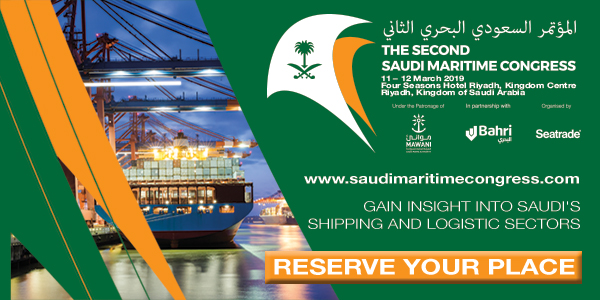Driven by its commitment to achieve the ambitious goals set out in Saudi Arabia’s Vision 2030, Saudi Customs have launched and implemented various initiatives that adopt and implement groundbreaking technologies and innovative practices that aim at enhancing the business environment, increase the competitiveness of the Saudi market, and attract international investment in cooperation with its partners.
“Our transformation journey had a positive impact in raising the Kingdom’s GCI ranking for the first time since 2012,” said Ahmed Alhakbani, Governor of Saudi Customs. “Our strategy included 41 initiatives that cover the pillars of Customs’ work across all land, sea, and air ports.”
Saudi Customs’ strategy revolves around three pillars and four enablers. The strategic pillars are revenue realisation, contributing to security and cultural protection and prioritizing customer centricity and trade facilitation.
The four strategic enablers are: achievement of organizational excellence; enhancement of the risk management’s effectiveness and efficiency; infrastructure improvement and operations’ digitisation; and enhancing the organisation, managing the change and communicating internally.
Alhakbani outlined the various efforts done by Saudi Customs over the past two years to improve the competitiveness of the business environment and facilitate logistical procedures that are a key enabler to enhancing trade facilitation and customer centricity.
“Saudi Customs have succeeded in the clearance of more than 80% of Customs declarations within 24 hours, on average, through pre-clearance procedures, technology enhancement efforts and the digitisation of most Customs operations,” he said.
Fasah, the electronic national system for import and export that was launched as a joint effort of 25 government entities, achieved a positive outcome in the clearance procedure, through enabling companies to track and complete their clearance procedures electronically, and contributed in decreasing the number of clearance documents.
“This was in addition to the issuance of the new Customs clearance practice guide, which authorised companies to issue Customs clearance license,” said Faisal Saad Albedah, Deputy Governor for Trade Facilitation at Saudi Customs, outlining some of the results achieved by Saudi Customs initiatives.
The guide also included many amendments that aim to contribute to monitoring customs imports and exports clearance activities, reducing Customs violations, and addressing possible operational disputes. Faisal explained that local exporters were also allowed to use the Customs boding zone for storage purposes, in line with trade facilitation procedures.
“As many as 1.4 million Customs declarations were cleared during the first half of 2018, and the volume of exports and imports during the same period exceeded 66 million tonnes, surpassing the value of SAR365 billion ($97.3bn),” said Albedah.
“More than 80% of Saudi Customs declarations were cleared within an average of 24 hours, and many shipments received direct clearance before they even reach the Customs’ ports.”
Albedah also highlighted the importance of the Authorised Economic Operator Program (AEO) that will enhance the business environment and further facilitate Customs procedures.
“Through reducing the number of documents needed for import and export, and activating the pre-arrival electronic submission, the Customs procedures and mechanisms have been greatly enhanced,” he said.
Albedah also mentioned the pioneering step recently taken by Saudi Customs in cooperation with their strategic partner ‘Tabadul’ and international companies such as IBM Technical and Maersk Shipping Company to implement Blockchain technology in sea ports for digital transactions via the Internet.
“Blockchain ensures validation, licensing, and the highest levels of security and encryption to improve and digitalize sea shipments,” he said. “This technology aims to speed up and facilitate ports operations safely, reliably, and at a high encryption level.”
Albedah also said that more work was underway on several projects that include improving exemptions and restrictions procedures, developing logistics services, and automating additional Customs procedures.
Copyright © 2024. All rights reserved. Seatrade, a trading name of Informa Markets (UK) Limited.
Add Seatrade Maritime News to your Google News feed.  |


